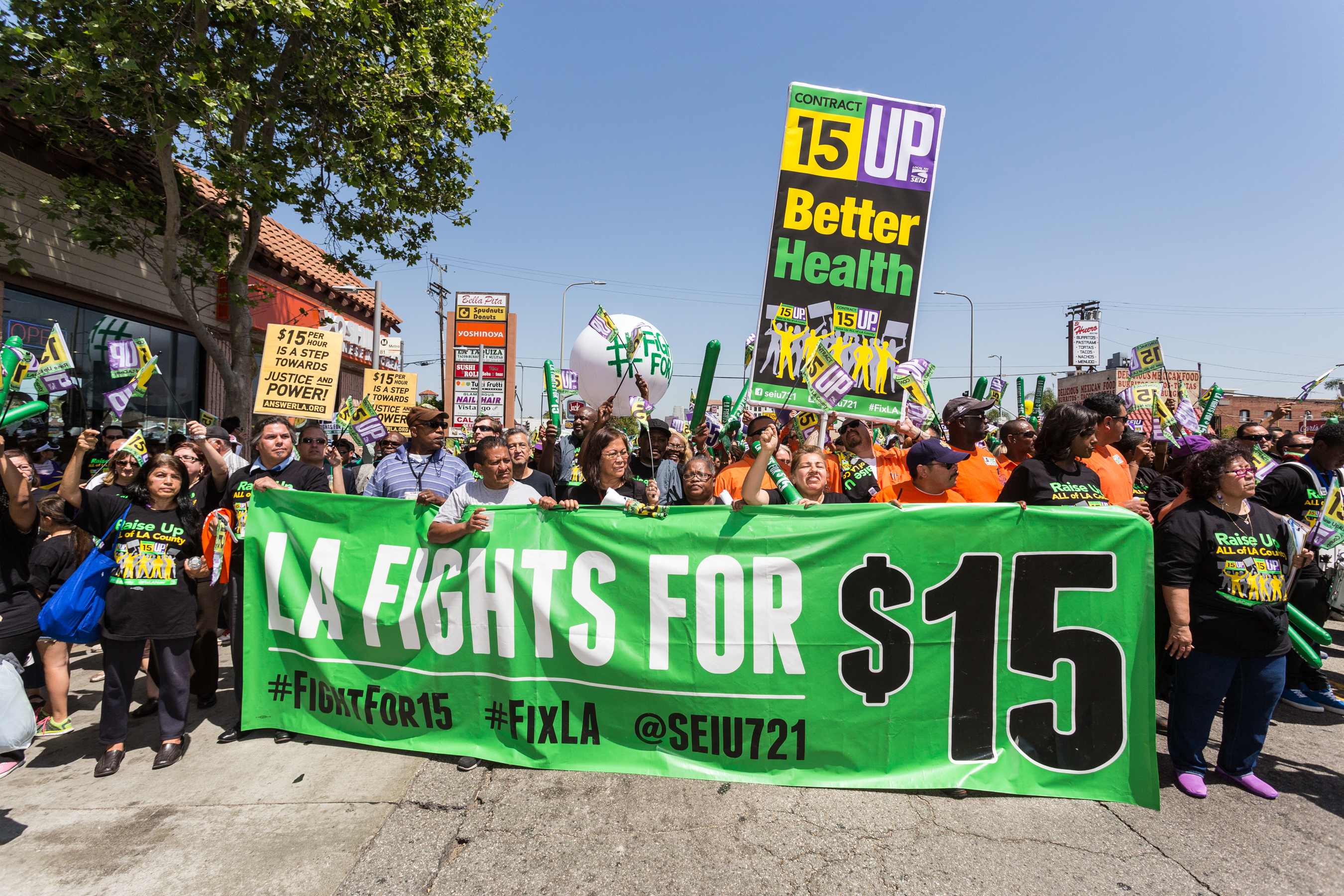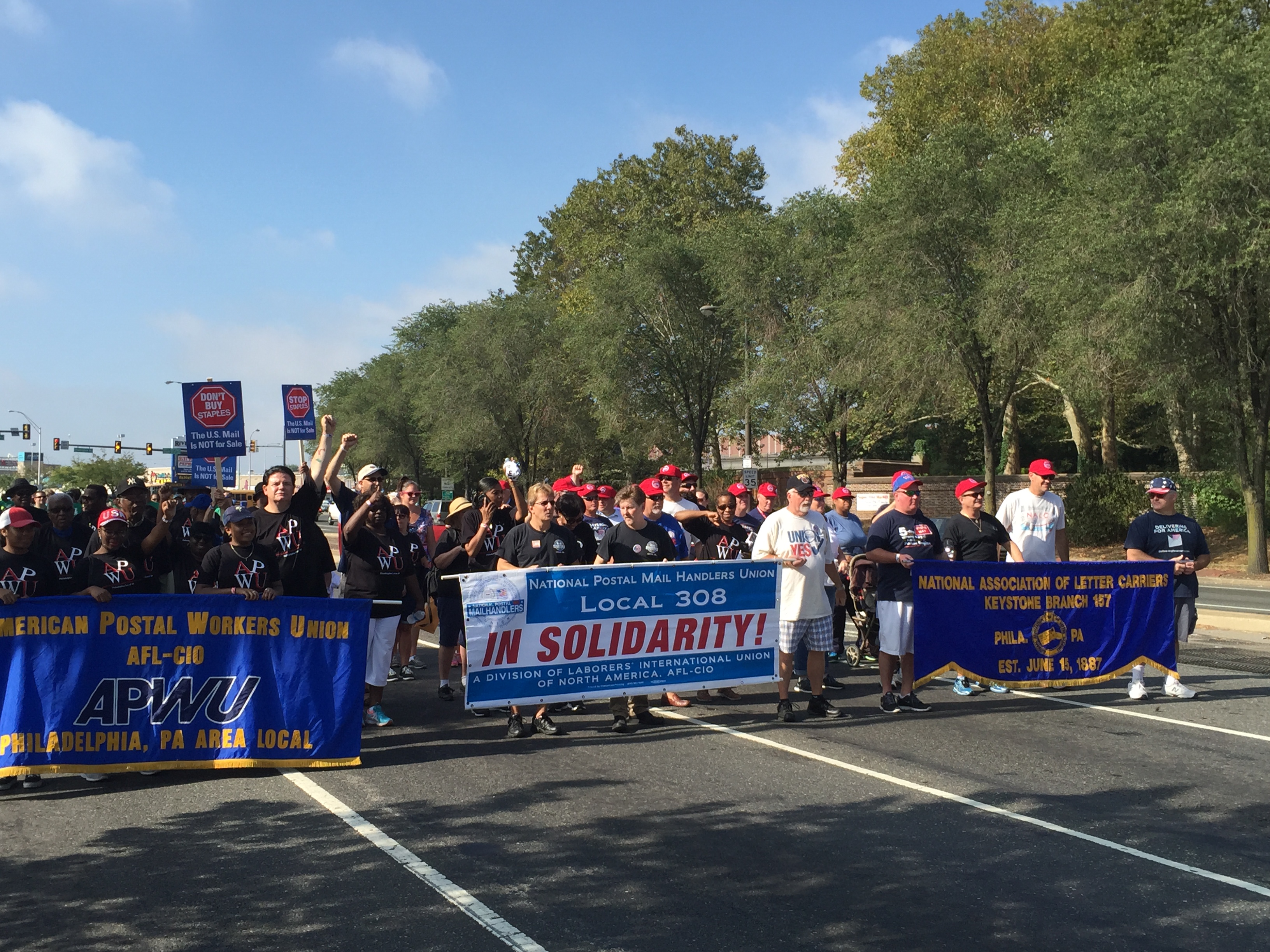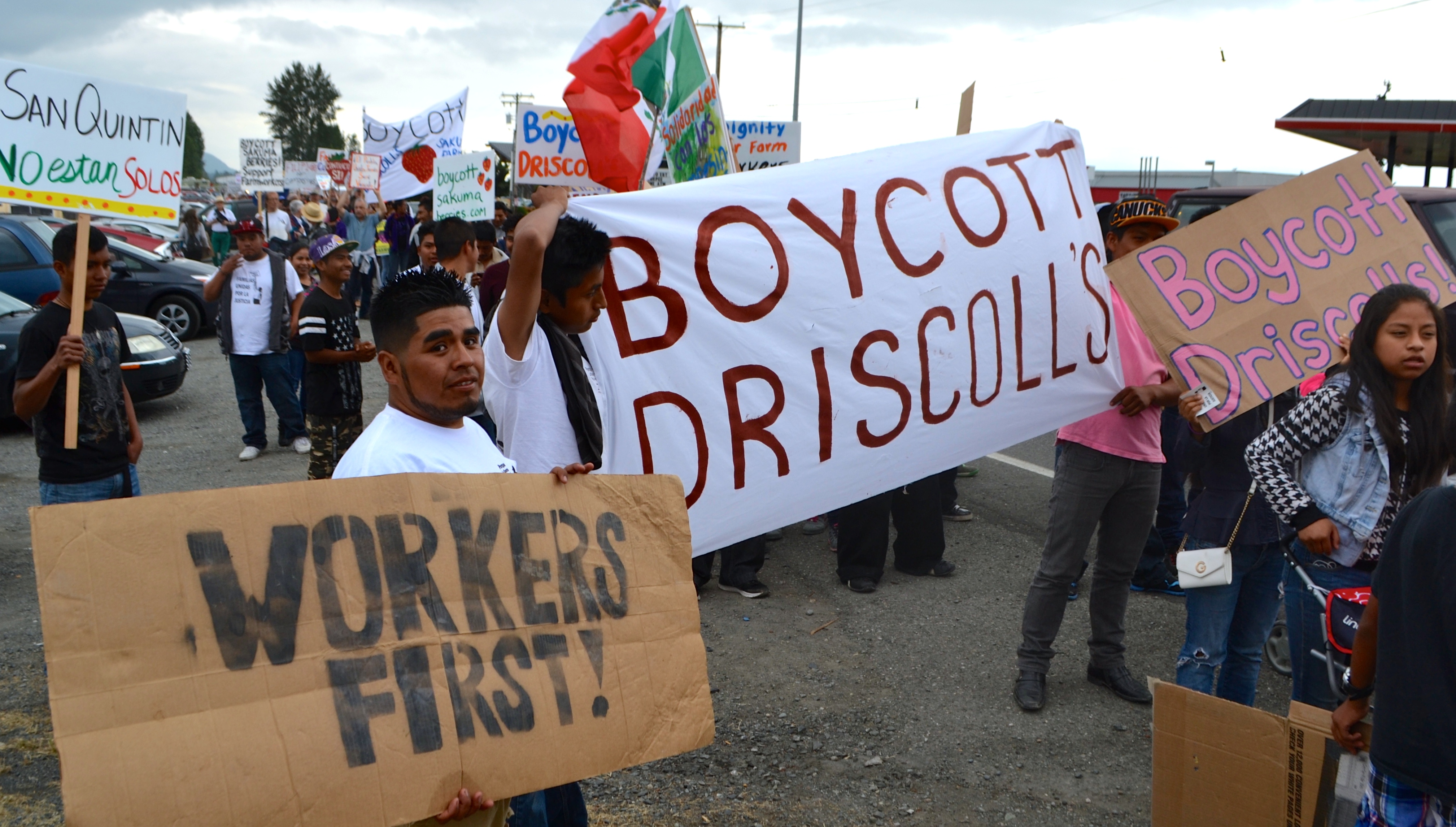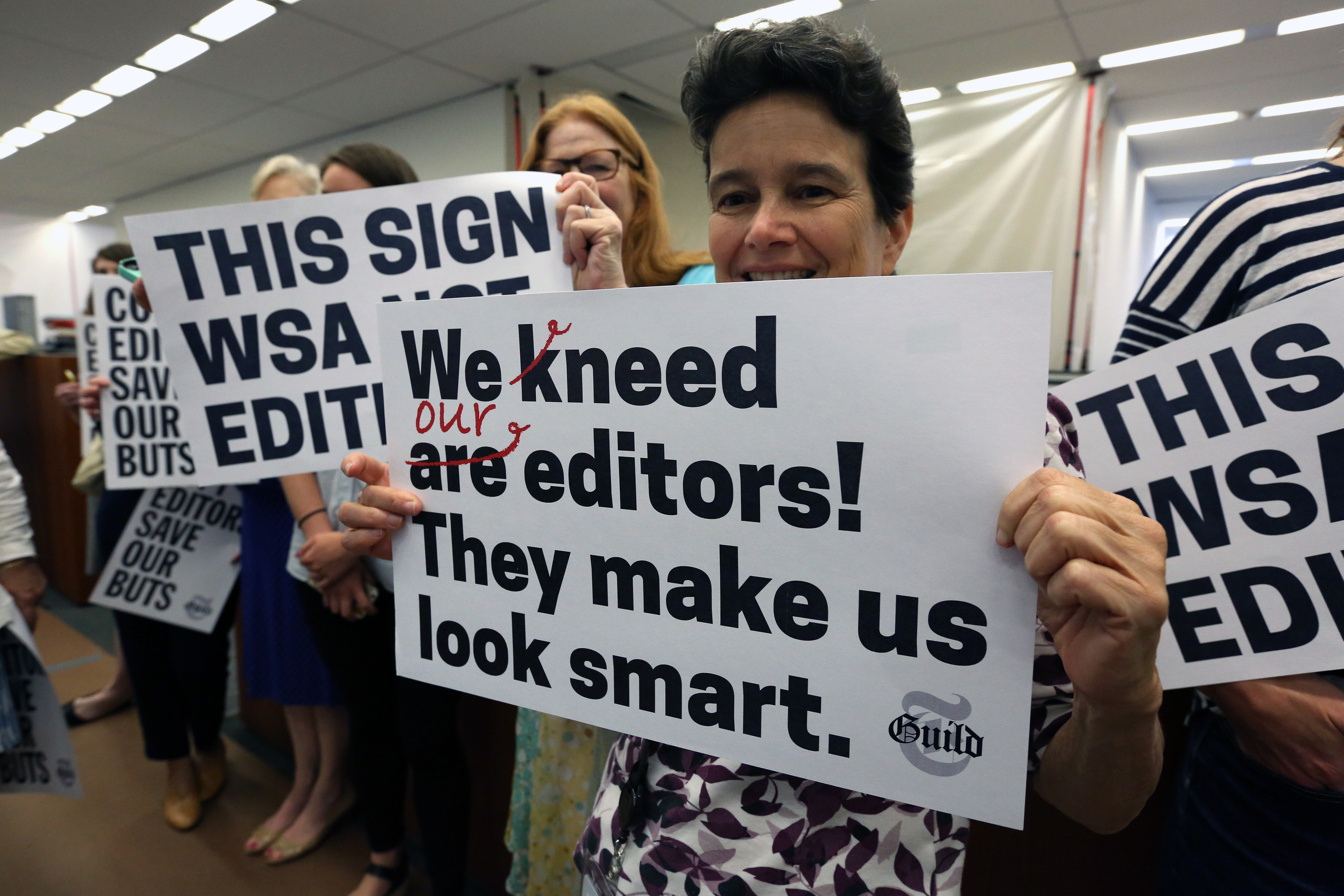Labor News Briefs
September 1, 2017

SEIU Local 99/Flickr Creative Commons
(This article first appeared in the Sept-Oct 2017 issue of the American Postal Worker magazine)
Minimum Wage Raised
Voters in several states and cities approved ballot initiatives to raise the minimum wage, which were enacted this summer.
Minimum wage workers in the states of Maryland and Oregon, as well as in the cities of Washington, D.C. and Los Angeles, received a pay raise July 1. Minimum hourly wage in D.C. increased to $12.50, in Maryland to $9.25 and in Oregon to $10.25. In Los Angeles, minimum wage rose from $10.50 to $12, except for workers who are employed by a company with 25 workers or less.
None of this progress toward a livable minimum wage would have happened without the Fight for $15 movement. Since 2012, workers from all industries have been demanding a standard $15 an hour minimum wage and union representation, putting pressure on corporations with massive rallies across the country.
Voters in many other cities raised the minimum wage to $15 per hour. In Minneapolis, workers will get a raise by 2024. In Atlanta, the minimum wage for city workers will increase to $15 an hour by 2019. By 2022, minimum wage workers in the state of California, and cities of Seattle and New York City, will receive $15 an hour.

Celebrate Labor Day
Labor Day is celebrated the first Monday in September, to commemorate the work the labor movement does to improve the lives of working people.
APWU members are encouraged to take part in Labor Day activities on or around Sept. 4. March in a parade! Join your fellow workers at a city/town meeting, rally or barbecue! Many local, state and affiliate organizations hold parades, picnics and other fun family events. Ask your local union representative about what is happening in your area.
After you participate, let us know! Send pictures of you, your coworkers and/or family to communications@apwu.org to be featured online or in this publication. Wear your union gear!
Sakuma Berry Workers Win Contract

Alexandria Jonas Flickr/Creative Commons
After years of strikes, rallies and a Driscoll berry boycott, Familias Unidas por la Justicia (FUJ) mem- bers ratified a two-year contract on June 15, with over 85 percent approval.
FUJ President Ramon Torres called the contract with Sakuma Brothers Berry Farm “historic.” Workers will receive a $15 an hour minimum wage, no matter how many berries they pick, along with:
✔ Union recognition for all Sakuma Farms workers,
✔ A grievance procedure,
✔ No firing without just cause,
✔ Union representation during dis- ciplinary meetings,
✔ A Labor Management Communi- cations Committee that informal- ly resolves union issues, and will also develop a retirement plan for members by the end of the next contract,
✔ The company cannot lock out workers.
After ratification of the contract, FUJ declared the Driscoll berry boycott lifted.

New York Times Reporters Walk Out
Hundreds of New York Times reporters walked out of their jobs in late June, to protest the paper’s decision to lay-off over half its copy editors.
Reporters, who are members of the News Guild of New York, held purposely misspelled signs during the action, to shine a light on the importance of their editors.
Reporters also sent a letter to Times management, showing solidarity with the copy editors. In it the reporters explained how the decision will damage the newspaper’s quality. “It will undermine the reputation that generations have worked to build and maintain, the reputation that keeps readers coming back.” the letter said.
VA Accountability Act is a 'Union Busting Bill'
The Department of Veteran Affairs Accountability and Whistleblower Protection Act (H.R. 1259) was signed by President Trump in late June. The law does not do anything to make quality health care more accessible for veterans, and is nothing but bad news for unions.
Introduced by Rep. David Roe (R-TN-1), the bill was passed by both Republicans and Democrats in the House and Senate with an overwhelming majority. It contains language that essentially destroys job security for Department of Veteran Affairs (VA) workers. Although the 230,000 affected workers are represented by the American Federation of Government Employees (AFGE), the bill aims to weaken the union’s ability to represent them. The following measures could be implemented if management chooses:
› Less documentation will be required to remove or demote workers.
› Management will no longer be required to dole out progressive discipline.
› Arbitration and appeal rights will be restricted.
“The VA Accountability First Act of is a union-busting bill – plain simple. It will only advance the agenda of the Koch brothers, union lawmakers, and private, for-profit corporations that would reap the benefits of a dismantled VA medical system. Backhanded efforts to eliminate employees’ workplace rights does nothing to improve the VA or veterans’ care,” said AFGE President J. David Cox.



